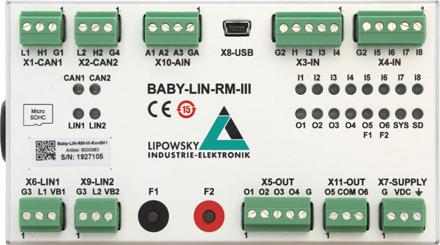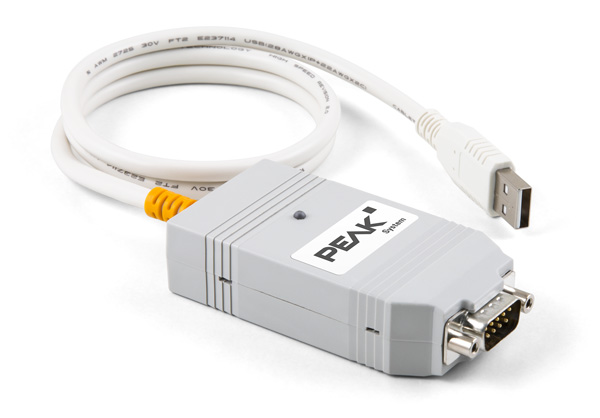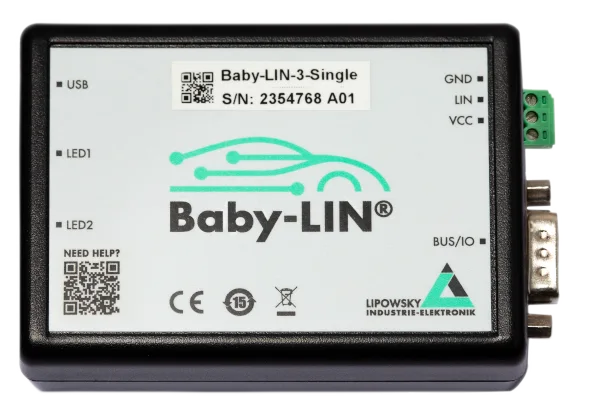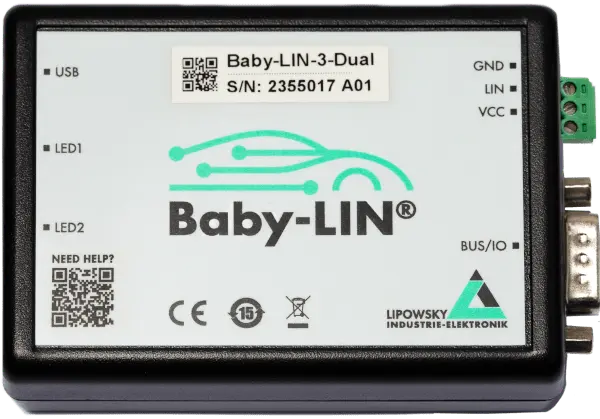- Home
- Technical Products
Enterprise Cloud IT Solutions
Test Measurement
Industrial Measurement
- Solutions
Enterprise Cloud IT Solutions
Test Measurement
- Latest Articles
- About Us
 EN
EN
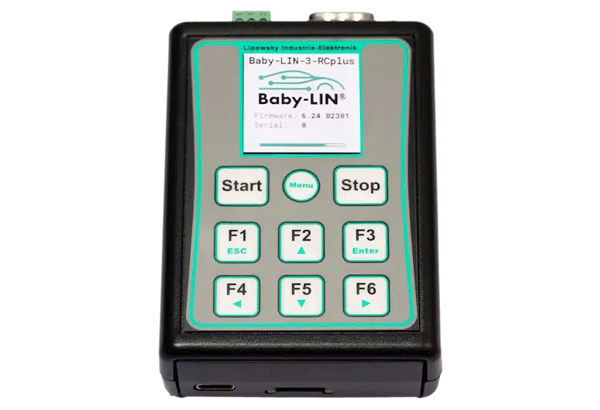
baby-lin-3-rcplus
LIN and CAN bus simulation device with color display and keypad
The Baby-LIN-3-RCplus is a compact LIN and CAN emulator with 9 freely configurable pushbuttons, a 1.54" display and an expandable microSD card, which is ideal for stand-alone operation. The two PWM-enabled I/Os support a wide range of sequence options that can be defined using our LINWorks software package. Signals can be displayed and sequences selected on a configurable GUI.
Deliverables
- Baby-LIN-3-RCplus equipment
- USB-C 2.0 Cable, 1 Meter, Type A to Type C
- 3-pole plug with 1 screw connection (MC 1,5/ 3-ST-3,81)
- 1x SUB-D9 plug
- License to download the LINWorks package (including LINWorks PC software, USB drivers, sample files and documentation)
Performance Overview
Applications
- Ideal for demos, final testing and services
- Can be used for LIN/CAN bus simulation, control unit testing, automated test systems and EOL applications.
- Available in stand-alone mode, with programmed command sequences to control the device
- Can be used with LINWorks software via USB on a PC.
- Real-time reading and writing of frame data
- Monitoring the LIN bus in the monitoring function without SDFs
- Data logging function can also be operated independently
Technical Features
- Membrane keypad with 9 keys and 1.54" display
- Button functions and display contents can be defined in the SDF.
- Supports LIN bus versions 1.2, 1.3, 2.0, 2.1 and 2.2.
- CAN-High Speed Interface (ISO 11898-2), expandable to CAN-FD with activation option (additional charge)
- Bus interface is electrically isolated from USB
- Two inputs/outputs with PWM support
- MicroSD card slot for SDHC cards up to 32 GB Activation option required (extra charge)
- Circuit board voltage range of 8 - 28V
Compatibility and system requirements
- Windows 10/11 (32/64-bit)
- DLL library interfaces: Windows (x86 and x64), PC-based Linux (x86 and x64), ARM-based Linux (x86 and x64)
- Native programming in C/C++ is possible, as well as through the wrappers of .NET language, Python, VB6 and LabView.
More Products
Professional technical support from HONGKEI to help you succeed in your project.
HongKe offers the Lipowsky Baby-LIN and Harp series of communication and test equipment designed for the development, simulation, analysis and testing of LIN buses. With compact size, stable performance and flexible interface, the products can meet the needs of various applications from laboratory to production line, and help engineering teams to complete LIN-related function testing and system integration efficiently.

